Social Entreprenuers = 21st Century Activists
The Activists of the 1960’s and 70’s saw groups of individuals taking to the streets demonstrating against the establishment, the government. They picketed and destroyed property to make their voice heard that they were not happy with the status quo of the time.
Fast forward to 2015 – social activists are still present taking to the streets, boycotting and occupying but there is a new face in the playing field: “In less than a generation, we have witnessed a tectonic shift in the way people think about and work toward social change. And this new social phenomenon is SOCIAL ENTREPRENEURSHIP – these are innovative change makers who create new solutions to entrenched social, economic, and environmental problems.” (Keohane 2013)
Some may argue that social entrepreneurs aren’t really activists but I disagree. They take risks, they go against the grain, they rarely take no for an answer, they’ve got the same drive and tenacity as all entrepreneurs but at the heart of all their activities they use their influence and their innovation to make an impact for society as a whole.
As a result of the positive impacts social entrepreneurs are having, barriers to finance and legal restrictions are bring brought down allowing the industry to thrive. The social entrepreneur model is different from the traditional entrepreneur business or social change agency. They sit on the realms of the 2 worlds, collaborate with non traditional partners and are often happy to share their victories. The most famous Mohammed Yunus, a Nobel Prize winner, brought about a revolution in the finance market through the Grameen Bank, providing microcredit and microfinance to the unbankable – those too poor to have a bank account in Bangladesh.
For me one of the highlights in social entrepreneurship are the innovations coming out of Africa. For too long Africa has been forced to look outside for ideas to solving their problems when maybe the solutions had been inside the continent. Africans tend to already have the entrepreneurial spirit within them coupled with various social needs equals endless opportunities. Kenya for example is often described as the silicon savannah with entrepreneurs jetting in from all over the world creating social enterprises using primarily mobile technology addressing issues ranging from health, to education, agriculture and financing, making a direct and beneficial impact to the communities they interact with.
Social entrepreneurs see opportunities where others don’t. And they bring innovation to situations where others have tried and failed. And because of that I believe they have the power to change the world.
Bibliography
Keohane, Georgia Levenson (2013) Social Entrepreneurship for the 21st Century: Innovation across the non-profit, private and public sectors , McGRaw Hill Companies, e-ISBN 978-0-07-180168-3
The Beauty of Purpose
What is life all about again? Is it really only about reaching the next goal, becoming successful, earning loads of money and meeting the expectations of our parents, friends and superiors? Shouldn’t we aim for a greater meaning in our lives, perhaps to find something that aligns with our values, passion and that has a purpose?
In the economical and bureaucratic society we live in today, the most important thing is to find a job. But for many other people it has to be more than that and are therfore looking for new ways to do business.
The new change-makers recognise a particular social deficit in areas such as poverty reduction, integration, education, environmental protection and human rights and try to provide scalable solutions or efficient approaches to meet the needs of the vulnerable and to improve the quality of life of individuals around the world. They choose to see opportunities where others see intangible problems and create a change through market-based solutions that enable the disadvantaged to become economic citizens. The goal of these change agents is to transform communities for the better so that they can thrive and address their challenges themselves without being dependent on a third party.
The major driver of social enterprises is not the pursuit of profit, but purpose and the wish to create an impact that makes the world a little better. To create added value, meet a societal challenge to empower and creatively re-imagine how business and individuals can create a positive impact and lasting value. The profit concept, compared to business as usual, stands in the background.
However, good will, a clever idea and an entrepreneurial spirit are not enough to meet the complex situation of a social justice issue. It is about finding a cure, rather than just treating the symptoms. This is why the main focus of the entrepreneurs is to combine the private and public sector of the economy to create innovative concepts that are later on transformed into an economic activity to develop universal and sustainable solutions to the current problems.
While moving away from philanthropic donations, fundraising and dependency – social entrepreneurs want people to solve problems on their own and therefore provide them with the right tools to scale the innovation. The beauty of it is that it really brings everybody`s assets to the table and everyone is acting as servants of their passion and interest. Not only to promote ownership but to create something meaningful.
A new Environment for Social Entrepeneurs
The theory of Six Degrees of Separation says that everyone in the world is six steps away from any other person in the by a chain of a friend of a friend[1]. But, is this theory still true? In a world with 93% of mobile penetration, 50% of Smartphone penetration and 35% of the population with access to the Internet is difficult to believe that we still six steps away from anyone[2]. The reality is that with a click on our Smartphones, we can reach more than 6.500 million people around the world.
This reality has huge social implications, as Samartphones have become the “epicenter” for everything from buying to communicating through travel and learning[3]. That creates the perfect environment for social entrepreneurs to innovate and impact in a bigger scale than ever.
One of the bigger problems of social entrepreneurs is the social scaling. The impact of any action comes through the dissemination of the action or idea. The biggest dissemination, the biggest impact. The use of Smartphone and online platforms as a way to reach people could help social entrepreneurs to avoid the current dissemination problems:
- Market forces don’t work due to the small return → The dissemination is not base on the return anymore because is the dissemination what create the return.
- Not enough resources → it needs less recourses to reach more people.
- There’s not economy of scale → Apps and platforms are that much affected by economy of scale.
Therefore, it is normal that many social entrepreneurs are using apps and online platforms for develop their activities base mainly in collaborative economy and crowdsourcing. For example: (More examples in www.apps4citizens.org)
- Countable Congress (US): Countable is a platform that makes government easy, empowering voters with the knowledge and tools necessary to directly influence policy and keep track of their congressional representatives.
- Libres (Spain): App promote by the Spanish government to help battered women and their families to end with the violence situation.
- Celicity . Gluten-Free Socialnetwork(Spain): Platform for celiac people that recommend place for buying and eat without being worried about what you are eating.
To conclude, there’s a new way of communication through Smartphone that can reach more people than ever. Therefore, it creates the perfect environment for social entrepreneurs to increase their impact and scaling their ideas in an easiest way.
[1]http://en.wikipedia.org/wiki/Six_degrees_of_separation
[2]http://www.slideshare.net/wearesocialsg/social-digital-mobile-around-the-world-january-2014
[3]http://www.eldiario.es/alternativaseconomicas/brujula-Apps-colaborativas_6_387121309.html
What you have is what I need: Collaborative Economy
If there is one thing I love about this master is that it covers such vast areas of development, sustainability and overall citizenship. “What you have is what I need”; that sounds rather selfish than sustainable. But here is what it boils down to: “share what you have”. In a collaborative economy it’s all about collaborating by sharing and/or reusing of excess knowledge, goods and services, space, transportation, money and food. It’s a kind of We-commerce.
Society is more digitally connected today than before. This makes a collaborative economy easier and more accessible to everyone. I believe the growth of digital access is due to two factors: geographical area of access to mobile phone and wider age range of use of mobile devices. We sometimes mistakenly suppose some countries have less access to mobile phones (in some parts of Africa the use is nearly as high as the U.S). Regarding the age range of users, my 9 year old niece owns her own tablet today. Well I’m sure a 2 year old plays games on a tablet or phone too, and my 70 year old mother connects with me on whatsapp, Facebook and uploads pictures of her garden so her daughters can keep track of her. I guess that the economic crisis has pushed creative entrepreneurs into finding cheap solutions to every day challenges. And so the sharing economy came about.
And it has been growing for the past years. Today over 25% of the U.S, Canada and the U.K. use some sort of Sharing mechanism. There is potential in this market. PWC estimates that the revenue of the shared economy could reach up to $335 Billion by 2025! To understand what we are talking about, let’s look at some examples of sharing economy: Wikipedia/ Facebook (we share knowledge), Alibaba (goods), Airbnb
(accommodation), BlablaCar (ride sharing), Kiva (money-Loans that change lives) and Kitchen Surfing (food). What all these have in common, are that behind them there are digital platforms (mostly mobile Apps) so you can share, what you have with others, or use what others are offering. Don’t you love the idea? Why make a trip alone, when you can carry 3 more people with you (BlablaCar)? Less CO2 emissions for sure. See how we are getting more close to sustainability? Do you have too many left overs over and over again? Hire a kook (kitchen surfing)! Less waste means more sustainable. Money lending means more social development, empowerment and inclusion.
But, I’m a little concerned of stepping in the car with a complete stranger to make a 4 hour trip from Madrid to Zaragoza.
Why? I can get kidnapped….!!! But the beautiful thing about sharing economy is that, besides being sustainable, it’s all about trust (and efficiency). I can see how my driver has been rated by other users, which can help me select a good driver trusting that I’ll get to Zaragoza safely, faster than with the bus and cheaper than with the train.
Sharing or using shared services could become part of your lifestyle. Meet Logan Whiteside. She rents her clothes at Le Tote, her entertainment comes from Netflix, she travels with Uber and cooks with the help of Hello Fresh. I admire her commitment.
To end I would like to quote my teacher, Daniel Truran:
“Collaborative or Sharing Economy means BlablaCar without cars, Alibaba without inventory and Airbnb without rooms.”
And indeed, who needs tangibles, when we can just share what we have and coexist with our regional taxi service, your favourite garment store and the 5 star hotel at the beach? Hopefully all the examples I’ve given have convinced you that a Sharing or Collaborative economy is transforming the society, socially, environmentally and economically.
P.S. Lucky for me, in just two months I’ll be moving to Europe’s first Shareable City.
Sources:
1. “Why the collaborative economy is changing everything”. Forbes Magazine. Consulted on May 12th, 2015. Available here.
2. “5 start-ups changing the economy in Hong Kong”. Collaborative Consumption. Consulted on May 12th, 2015. Available here.
3. “Cell Phones in Africa: Communication Lifeline”. Pew Research Center. Consulted on May 12th, 2015. Available here.
4. “Amsterdam, Europe’s first shareable City”. Collaborative consumption. Consulted on May 13th, 2015. Available here.
5. “The future of sharing economy depends on trust”. Forbes Magazine. Consulted on May 13th, 2015. Available here.
6. “Porqué rento todo desde mi ropa hasta mis joyas?”. CNN en Español. Consulted on May 13th, 2015. Available here.
7. The Sharing economy: sizing the revenue opportunity. PWC United Kingdom. Consulted on May 13th, 2015. Available here.
Supply Chain and Gamification Project – Start up
This project is launched by a group of students from the International Masters in Sustainable Development and Corporate Responsibility (Class 2015) of the E.O.I, Madrid Spain. The aim of this project is to find creative solutions to address labour issues in supply chains.
This is our start up video. Hope you enjoy it. We are on!!
Created by:
- Eva Capellán
- Juan Juan Chen
- Rocío Dañino
- Esther Sydney
“The heroines of the Supply Chain”
A recipe for positive social impact?
I enjoy eating delicious and healthy, and quite often I lock the kitchen door, put the music on, and proceed to steam, bake, saute and boil. I am not an expert, but I’ve come a long way in the kitchen and I believe I’m a decent cook.
I don’t know much about social entrepreneurship, but I know little about cooking and I thought it could be a good metaphor to explain how to create a social enterprise.
Many people believe that creating a delicious, healthy and well-presented dish simply involves gathering the right ingredients, mix them in the right order and during the appropriate amount of time, and voila! The problem is that cooking entails far more art and love than following a recipe, unless you want to end up cooking ho-hum dishes.
 The same premise is applicable to social entrepreneurship. There are many pre-existing recipes out there ready to be used, but the only way to be a successful social entrepreneur is to jump on the bandwagon of social venture and make it up as you go. The most important ingredient is the PASSION you are going to put on it. Passion is at the core of success in both cooking and business (and everything in life). However, turning passion into a delicious dish or a thriving and successful company requires more than a strong emotional connection.
The same premise is applicable to social entrepreneurship. There are many pre-existing recipes out there ready to be used, but the only way to be a successful social entrepreneur is to jump on the bandwagon of social venture and make it up as you go. The most important ingredient is the PASSION you are going to put on it. Passion is at the core of success in both cooking and business (and everything in life). However, turning passion into a delicious dish or a thriving and successful company requires more than a strong emotional connection.
In order to success, it is crucial to understand WHAT IS IMPORTANT FOR YOUR TARGET AUDIENCE. Using the metaphor, it is not the same cooking for 2 people than cooking for 20. What kind of food they like/dislike? Is there any type of food restriction? How about an atmosphere to promote a pleasant evening? These are all important questions we need to ask to ourselves to understand who are we serving and to create empathy with our audience.
Now it is time to assess your CAPABILITIES and CAPACITIES. In other words: do we have the skills and the resources to address the issue? Leaving the metaphor aside for a moment, it is crucial to create a business plan for your social enterprise. You can start here, today, with certain resources and abilities, but you probably want to get to a point in the future at which time your social venture will have or need a different set of resources and abilities. A written business plan will show you how to get from here to there.
 And last, but not least, now you need FINANCE. When you are just starting out, you are not at the point yet where a traditional investor or lender would be interested in you. Have you heard of crowdfunding yet?? Luckily, nowadays we live in an era of collaboration with endless opportunities for sharing knowledge, resources, ideas, etc. while creating reciprocity. There are many people willing to be involved and looking for the best ideas to generate social impact. Just go find them!
And last, but not least, now you need FINANCE. When you are just starting out, you are not at the point yet where a traditional investor or lender would be interested in you. Have you heard of crowdfunding yet?? Luckily, nowadays we live in an era of collaboration with endless opportunities for sharing knowledge, resources, ideas, etc. while creating reciprocity. There are many people willing to be involved and looking for the best ideas to generate social impact. Just go find them!
Ohh, and don’t forget: creating a social enterprise is the same as cooking, you begin by reading the theory from the recipe books, but only when you spend years in the kitchen is when you learn the principles that will help you follow the more complicated recipes.
Enjoy this process and the results may be surprisingly delicious!
The power of strong and coherent Foundational Values
“They want to make an impact”. I extracted this phrase from a Stanford article that explained why graduate students are turning down US$150,000 entry level salaries, because they want to have meaningful jobs.
This are really good news for the world. I had already heard before that the so called “Millennials”, the current young generation, will be the first generation in centuries that will earn less than their parents. Why? It would be easy to blame the economic crises and the global challenges for this income downgrade, but actually the real reasons go beyond the traditional logic.
According to a study carried out by Deloitte[1] “when looking at their career goals, today’s Millennials are just as interested in how a business develops its people and its contribution to society as they are in its products and profit.”
Millennials value family, and creativity in their work; and they also value the role that they play in their communities. For them, making a contribution to society is as important as being virtually connected through social networks. According to another study from CEA[2], Millennials value Time for recreation and contribution to society, much more that the previous generations of Gen X and Baby Boomers. Also, a study from Universum[3] reveals that 90% of Millennials think they deserve their dream job and 50% would rather have no job than a job they hate.
Things are changing, and it clear by now that this new generation values other things that for the previous Baby Boomers and Generation X, were not so important. This is why companies must find other ways to engage with Millennials.
The changes on the demographical pyramid are making the world “older” (less children, more life expectancy). This means that the labor market in the future will be more challenging for employers than it will be for employees.
This puts an extra challenge for companies in order to attract and retain the best employees and the best minds[1]. What can companies do?? Beyond complex Human Resource strategies, companies should start thinking about how to reinvent themselves. Why? Because what Millennials want most, “is a career that actually matters”[2] and they want to know “what your organization stands for in improving society”.
In this sense, I consider that a strong Vision, Mision and Foundational Values that seek to contribute positively to society, can really be helpful to engage the young Millennials. These cannot be just a piece of paper hanged in every office and placed in the first page of the corporate website o annual report. Companies must start thinking about having a real meaningful purpose in society, one that goes beyond “being the best company in the sector”, or “being the leading company of the sector”, or “the most preferred by costumers”. Only if they are able to find one, and be true to it, they will succeed in the future. Coherence in every action and a real and true philosophy of serving society and therefore changing the traditional way of thinking from “being the best in the world” to “being the best FOR the world” will definitely be Key for the future. Companies must create emotional engagement by having a real promise that they actually deliver.
In this sense, SMEs that are created under strong values with a mission for the World, will have a huge advantage to attract the talented Millennials that seek for meaningful jobs.
[1] Deloitte “Mind the gaps The 2015 Deloitte Millennial survey” 2015. http://www2.deloitte.com/content/dam/Deloitte/global/Documents/About-Deloitte/gx-wef-2015-millennial-survey-executivesummary.pdf
[2] Monitoring the Future, 1976-2011, CEA calculations.
[3] http://www.universumglobal.com/articles/
[1] Students from Yale, Harvard, Dartmouth and Stanford, consider a “tragedy of wasted minds” to work in finance and consulting companies. (2011)
[2] http://www.forbes.com/fdc/welcome_mjx.shtml
Planting a Seed towards Sustainable Buisnesses -SME’s CSR-
Small and medium enterprises play an enriching and important role in the market. Daring to face powerful competitors with lower resources, these businesses have to figure out new strategies and hopefully turn their cons into pros.
For example, independent eco-agriculture in the United States has won great popularity due to health concerns and low trust on big multinationals that operate chains of discount department stores and warehouses. Why are SME’s and independent farmers more trusted by consumers?

Just paying attention to the size ‘small and medium’ enterprises may at first sight seem less reliable and solid than a ‘big’ enterprise. But if we go beyond this perception of vulnerability of the small, we can find out there are also positive features: A small / medium company will most probably be easier to approach at all scales, it is more likely to provide a personalized and closer service seeking to build long-term relationships with its customers, showing transparency on its processes.
Now-a-days market is dealing with a major turnaround due to more educated and demanding consumers. The concept of quality is scrutinized among the overwhelming range of products. There has been an evolution in the past 50 years where more customers don’t only seek to meet a demand, but to choose the product they want.
Systems in SMEs are much more simple and easier to track and control from suppliers to production, management, and customer service. This is a big advantage in trust building towards the customer because in case of there being inconvenience it is easier to target the problem and the person in charge as the process y less complex. Whereas in big enterprises a customer can get lost within departments and supply chains, and when placing a complaint clients often receive a passing the buck attitude from employees to supervisor1, supervisor 2, etc.
All this sets a more simple path for SMEs to implementing changes into systems, and engaging with CSR commitments. The small scale in this case brings the advantage of being a more solid team, with straightforward communication within and overall picture.
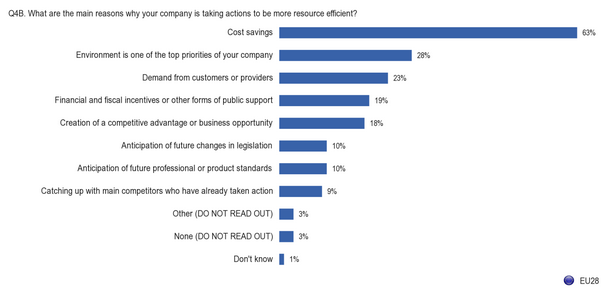
On the other hand big companies attract more media attention, being this a concern to protect and enhance their reputations with the broader public as well as key stakeholders. The reputational pressures are less for an SME. However, pressures on the larger corporates will inevitably translate into pressures on their suppliers, including SMEs.
All in all, though SMEs might not bring up such an efficiency gain as big companies, opportunities may come through innovation of more sustainable products. They have many of the same reasons for engaging in CSR that large companies have, both in avoiding downside risk and in exploiting upside opportunities. And as its logical, if an SME aims to compete and evolve to a big company, first step is working as a big company does.
The Rise of Start-ups in Africa
The western-based colonial image of Africa is starting to be passé. The one-sided representation as victims of violence, corruption and hopelessness are counted. Africa is on the way to a new self-defined future. While the caterpillar is still in its cocoon, it is about to become a big, beautiful butterfly with colourful independent wings, called Africa. The end of the transnational exploitation is in sight and the way to the development of a free and self-confident economy is gradually shoveled. Although Western media usually only reports on the negative events in Africa,you can quickly realise that far more good happens on the continent, than the nightly news want us to believe.
So what is it, that makes Africa thrive lately? Start ups! A global concept that is often seen by economists as the drive of a new industrial revolution. The influence of the start-up generation in Africa is of a particular nature and its extend and the speed of its development can not be compared to any other regions in the world. That of course, has to do with the fact that Africa is the last continent in the post-colonial phase of restructing and trying to get out of misguided subsidy policy. The new target is to transform self-determination by the colonialist, and racist oppression by the huge multinational companies, into a partnership and economic exchange policy.
Increasingly, small enterprises affect the course of the economy. The fact that start-ups are a serous model for the future of the global economy, can be seen by the amount of investments that are provided to encourage such companies. As Africa enjoys less government support, compared to countries such as Germany, the majority of African small businesses, draw their funding through fundraising organisations or private investor platforms such as “Angel Investors“. The plattform, for example, promoted 2014 entrepreneurs with approximately 27 million dollars. In countries, such as Kenya, South Africa, Ghana or Nigeria, companies rush to the IT, mobile and services sector. Also, since the majority of the African population has no bank account, the mobile phones, for example, are used to transfer or recive payments. There the reason of success for most start-up companies, is due to the adaptation to the African circumstances and local problems.
The benefits arising from the diversity of sustainable small businesses, are of global importance. Detachment from colonial economically battered economies, curbing corruption and increased regional autonomy are benefits that play an important role, especially in the case of Africa.
SMEs – The Future of CSR?
Many people want to work in a well-known, multinational company. They are lead by the impression that this is the only place where they will be able to have a successful career and have a worldwide impact. In many cases, they also believe that it is too risky to strike for a different career path. But does it have to be that way?
As some might think, SMEs cannot have any real influence in the business world. However, they might not be informed that they account for over 95% of the firms, 60-70% of employment and 55% of GDP in the OECD countries. This shows not just the importance but also the combined influence of all SMEs towards the society and the environment.
What makes it attractive to work in a SME?
Lower hierarchies, short communication processes, a high motivation for innovation, flexibility and adaptation are only some benefits that SMEs can have. Moreover, with growing opportunities of the Internet and media, even small companies are enabled to have a worldwide influence. WhatsApp, as a good example, has only 55 employees but serves 420 million users every month. This illustrates that size is not important anymore and less is mostly more!
Apart from the benefits SMEs bring with them for their working environment, I would like to highlight the main elements that are essential to be a small company operating responsible and sustainable at any time.
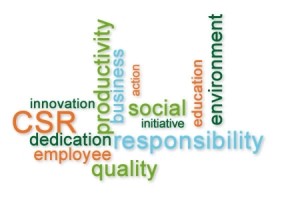
To found a SME, it is primarily important to be innovate and even better, to have a social innovative idea. Therefore, decisions have to be made whether to sell a product or rather deliver a service. Once an idea has occurred, the willingness to take a risk should exist, driven by the motivation to have an impact. To define how the small enterprise operates, what the values and the vision are, are the next relevant steps.
Based on all of this, a SME can only exist sustainably if CSR is not just a part of the SME but is actively integrated in the business. Hence, the founders have to be personally involved and committed to leading a responsible business.
They have to make decisions on where to locate and manage the operations, taking into account that short distances do not just save time but also money. They are relevant for the costumers, the employees as well as the suppliers. Concerning the suppliers, they should be chosen carefully to ensure that their business policy fits with the own company values. Therefore, it is essential that what they produce is needed just as well as where they are located and the way they produce.
A sustainably driven SME does also attract young talented employees that share the same values. Only with the dedication and determination of these talents, the enterprise can succeed and generate value not only for the shareholders but all the stakeholders involved. Therefore, it is essential to provide an environment that takes under consideration the well being of the employees. This does not mean having a comfortable physical space, but a working environment where the employees are actively involved and have flexibility concerning their schedules.
Finally, a SME should also consider how and in what way they contribute to their community. At this point, I would like to mention the “love brand”. Love brand stands for a brand, product or service that creates emotional engagement and will be the final step to lead to success. To make the costumers fall in love with your SME, the employees have to fall in love first to be able to deliver these emotions at any time. The promises that are made have to be delivered at any time. In that way, a community can be build that does trusts you, recommends you and stays with you!
Putting all these aspects into action means having integrated a fundamental strategic approach, the so-called “CSR 3.0”.
Personally, I am convinced that if every SME would manage their business in a responsible way and integrate CSR 3.0 a 100%, it will have an essential impact on the business world but even more on the world’s society. Essential is hence that not just the founder but also the stakeholders and the shareholders are emotionally involved and share the same values.
So, what are you waiting for? Get out there and found, work or engage in a SME!


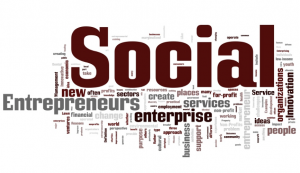

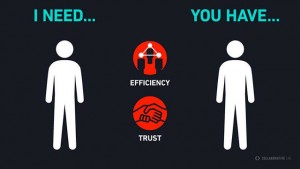


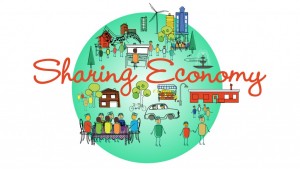
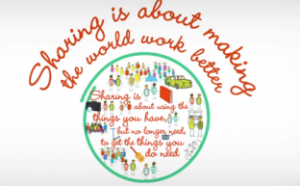

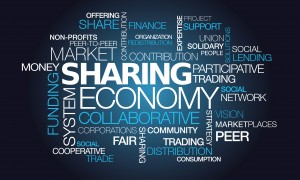
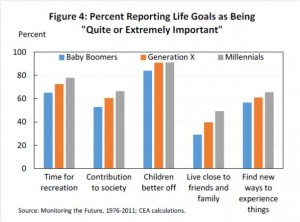
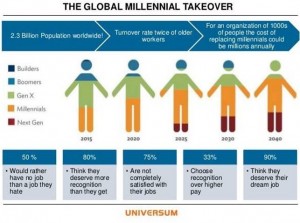
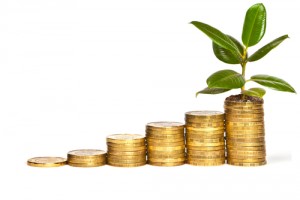

.png)
].gif)
.png)
].png)
].png)
].png)
.png)
].png)
.png)
